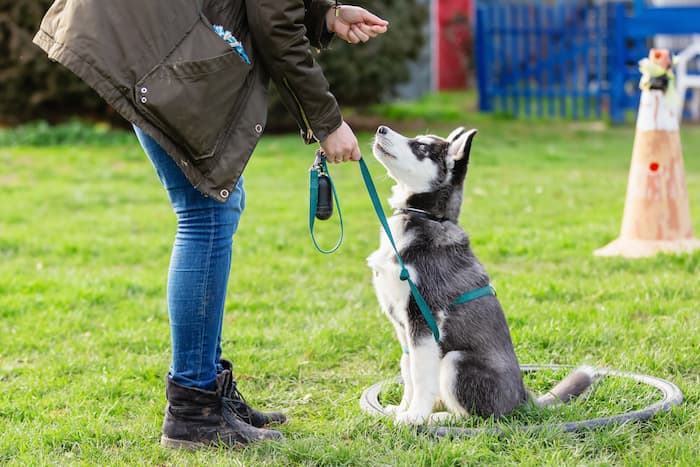Puppy preschool training has been widely recognized in Australia for its role in shaping well-adjusted adult dogs by focusing on consistent routines, socialization, and positive reinforcement.
This content explores the long-term impact of continuous puppy training on canine wellbeing, beginning with its overall significance and followed by an in-depth look at the specific behavioral advantages that arise from diligent practice.

Significance of Ongoing Puppy Training
Consistent training at a reputable puppy school lays the foundation for a dog’s emotional and behavioral stability. According to RSPCA Australia, puppies that start formal training between 8 and 16 weeks of age are more likely to develop healthy social habits, lower stress responses, and reduced aggression as they grow. This early intervention provides structure at a critical developmental stage, helping puppies understand boundaries and expectations while they are most receptive to new experiences.
Building Trust and Confidence
Structured puppy training strengthens the bond between an owner and their dog through clear communication and rewarding positive behaviors. Instead of relying on punishment-based methods, which can cause fear or confusion, positive reinforcement encourages puppies to make good choices.
The Australian Veterinary Association points out that trust established during these early lessons often results in fewer behavior problems in adulthood, particularly when owners consistently practice commands and social exercises both in and out of class.
Establishing Good Habits
Early enrollment ensures that puppies learn essential obedience cues before unproductive habits take root. Basic commands such as “sit,” “stay,” and “come” introduce the concept of following direction while providing a constructive outlet for a puppy’s natural curiosity.
Trainers at Puppy to Dog School emphasize repetition and steady progression, enabling puppies to build self-control and respond reliably to cues, even amid distractions like other dogs or busy environments.
Behavioral Advantages
Studies published in the Australian Veterinary Journal reveal that dogs exposed to regular training are approximately 60 percent less likely to display chronic behavioral issues over their lifetime.
A variety of common problems, including excessive barking, nipping, and destructive chewing, can be significantly reduced or even prevented through ongoing practice and socialization.
Reduction in Problem Behaviors
Consistent sessions at a puppy school allow instructors to address emerging concerns as soon as they appear. For instance, trainers can demonstrate techniques to redirect a puppy from chewing furniture or biting ankles to engaging with chew toys or practicing calm greetings.
This proactive approach encourages puppies to adopt acceptable alternatives, minimizing the chance of undesirable behaviors taking hold.
Increased Social Adaptability
Puppies that receive structured instruction in a group setting become more comfortable around strangers and other animals. Frequent, positive interactions help puppies learn how to interpret cues from their environment, reducing anxiety and reactivity.
RSPCA Australia notes that well-socialized dogs tend to experience fewer conflicts in communal areas, such as dog parks or veterinary clinics, demonstrating the far-reaching benefits of early training for puppies.

Emotional and Physical Wellbeing of Puppies
Consistent puppy training not only improves behavior but also has a lasting influence on a dog’s emotional and physical health. Puppies that receive routine practice in positive, reward-based environments tend to exhibit lower levels of stress and anxiety. According to a 2020 RSPCA Australia report, well-structured training for puppies can lead to improved coping mechanisms in new or challenging situations. As these puppies mature, they become more adaptable to changes in their surroundings, making vet visits and social gatherings significantly less stressful.
- Stress Reduction: Regular routines and positive reinforcement practices create a sense of predictability, which helps puppies feel secure and calm.
- Healthy Activity Levels: Structured exercises in a dog school setting encourage puppies to engage in safe, controlled play that supports physical fitness.
- Mental Stimulation: Short, varied sessions with interactive games or problem-solving tasks prevent boredom and associated destructive behaviors.
Trainers at Puppy to Dog School have observed that puppies who follow a steady practice schedule are more likely to remain engaged during lessons, contributing to better focus and quicker command retention. This proactive approach also reduces the likelihood of developing chronic stress-related behaviors later in life.
Supporting Evidence
Information gathered from organizations like the Australian Veterinary Association (AVA) and RSPCA Australia underscores the effectiveness of early and ongoing dog training. Research featured in the Australian Veterinary Journal shows that dogs who undergo structured lessons between 8 and 16 weeks of age are up to 60 percent less likely to develop persistent behavioral problems. These findings highlight the pivotal role of timely intervention in a puppy’s development.
Several studies have also compared trained vs. untrained dogs. Results indicate that animals exposed to consistent puppy school programs adapt more readily to everyday scenarios, including meeting new people or encountering unfamiliar environments. The AVA emphasizes that these positive outcomes are more pronounced when training continues beyond the initial obedience stage, suggesting that ongoing reinforcement can have a compounding effect on a dog’s overall wellbeing.
Practical Steps for Implementation
Establishing a reliable training routine involves collaboration between qualified instructors, dedicated owners, and supportive home environments. The following methods can help maintain progress after puppy training classes conclude:
- Select a Trusted Program: Look for trainers or dog school facilities recognized by the AVA or RSPCA Australia. Certifications ensure adherence to humane, science-based training practices.
- Practice Consistency at Home: Reinforce skills daily in short, focused sessions. Puppies benefit from repeated exposure to commands like “sit” or “come” under different circumstances.
- Encourage Social Experiences: Organize playdates or controlled meetups to help puppies become comfortable around other dogs and people, reducing the risk of fear or aggression.
Keeping sessions fun and positive lays the groundwork for lifelong good behavior. Instructors often recommend rotating toys and rewards to keep puppies motivated, while also incorporating brief downtime to prevent overstimulation.
Key Takeaways
- Structured and continuous training for puppies can yield lasting improvements in behavior, emotional balance, and general health.
- Australian studies consistently point to reduced anxiety, stronger social skills, and a smoother transition to adulthood in dogs that have experienced early and sustained training routines.
- These benefits are reinforced by evidence from the AVA and RSPCA Australia, both of which endorse positive reinforcement as a cornerstone for successful dog training programs.
- By prioritizing an ongoing commitment to instruction, owners set the stage for happier, more adaptable dogs who thrive in a variety of environments.
